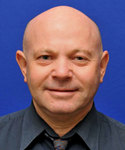| Biography | |
|---|---|
 Dr. Amnon Mosek Tel Aviv Medical Center, Israel |
|
| Title: The Clinic of Physical Empowerment, For the treatment of Medically Unexplained Symptoms | |
| Abstract: In a significant group of patients, complaining on unremitting debilitating symptoms, no disease is found despite a thorough medical, laboratory and imaging assessment. The treatment of these patients may also be unsatisfactory, resulting in temporary relief, leaving them into continues suffer and despair. These patients are diagnosed with 'Medically Unexplained Symptoms', that may affect multiple medical areas, such as chronic unremitting pain or headaches; non-epileptic seizures; gait instability; limb paralysis; sensory disturbances; difficulty in swallowing; non-coronary chest pain; eczema; constant itching; frequent urination; abdominal pain, fatigue and more. All are chronic, may last for years, and respond poorly to multiple treatments. The continuing long-term suffering results eventually in sensation of helplessness that may develop into depression with significant impairment of the social and family life and the working ability. These conditions are not rare. In fact, studies show that up to 10% of the patients seen in primary medical clinics and up to 25% of those seen in specialized hospital clinics may suffer from medically unexplained symptoms. While the current understanding of this phenomenon is that it is a dysfunction of the mind-body interaction, and they are categorized as 'somatic symptoms disorders' in the DSM V, many of the patients are convinced that their problem is purely physical and refuse referrals to a mentally oriented support. The Clinic of Physical Empowerment was created to help these patients. It was designed in a unique model, located in the ambulatory neurological clinics, i.e. not-related to a psychiatric facility, and provides multi-disciplinary treatment approach. We use a three-way treatment modality which includes a) drug treatment b) behavioral treatment (psychotherapy, psychological consoling, hypnosis, biofeedback, mindfulness) and c) physical therapy (medical massage, osteopathy, acupuncture, or dance therapy). A social worker is included when needed. Patients are referred from all over the country. Treatment may last for few months or longer. Our results show that in this severely affected and treatment resistant patients, circa third of the subjects gain relief; third only partial relief; and third remain unhealed. | |
